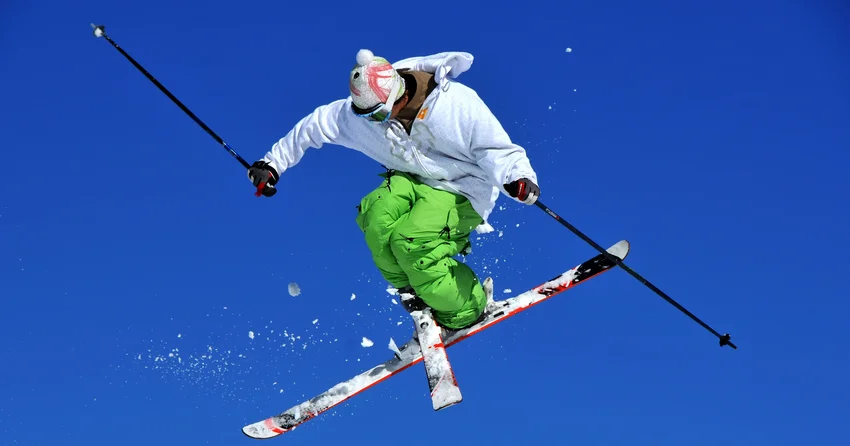How can we prevent an injury?
There are many ways in which we can prevent an injury while actively partaking in winter sports. First and foremost in importance, is our condition. If we do not feel prepared (are exhausted, tired or in pain as the result of the previous day’s skiing), we should take a day off and rest and then, with renewed strength, start skiing again the following day.
Warming-up is very important. Recommended are easier exercises such as gentle stretching that should be held for 30 seconds. If, while skiing, you decide to try a more difficult run, it would be worth your while to go for a warm-up run before your attempt. As we mentioned before, bone fractures are the most common sports injuries. In the case of winter sports, other factors enter the picture – these are ice, snow and trees – the latter not only marking the runs but may also be in our way.
Proper clothing and a helmet for the head and eyes, may provide good protection against these.
Their use is at least as important as being familiar with the ski runs. You should avoid the unfamiliar and steep areas as well as icy surfaces. If you must fall, try to land on a soft spot or onto your side.
Do not struggle: try to roll naturally with your head tucked in.
See a doctor immediately if you have fallen and hit your head, no matter how hard the hit was or you feel that the helmet offered the protection needed. The effects of head injuries are not always immediate. Symptoms of such as internal bleeding, sometimes appear only later.
The following are some suggestions for ways in which you could prepare for each sport:
Skating
If, you are just now learning how to skate, you would do well to protect your knees, wrists and head, in case you fall. Since this is going to be quite frequent in the beginning, we recommend wearing a helmet, knee and elbow pads and wristbands.
Sledding
The biggest problem while sledding is the cold. Always be sure that you are dressed properly for the weather conditions. A helmet would also be very useful in the event the sled turns over, breaks, hits a tree or other obstacle in its path.
Skiing
Since we use our entire body when skiing, you should thoroughly warm-up before going up the slopes and then, at the end of your skiing day, stretch your muscles well. Knee pads and a helmet are also important as is eye protection.
Snowboard
Snowboarding is very similar to skiing and with similar risks. The eyes should be protected with goggles, the head with a helmet and adequately warm clothing should be worn.


